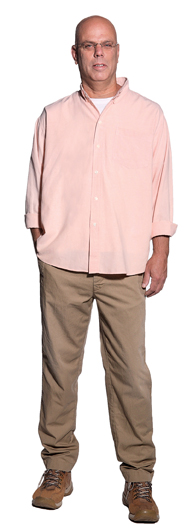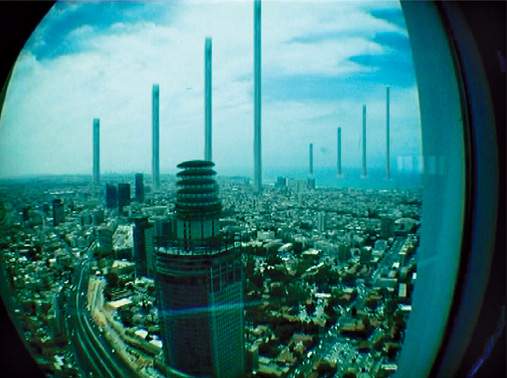The conversion of the sun’s energy to chemical energy is the basis of all life on Earth. The first stages of the process – photosynthesis – are among the fastest in the living world.
Prof. Ziv Reich of the Faculty of Biochemistry probes the basics of photosynthetic systems, asking how they are put together, how they work and, especially, how they cope with such varying environmental conditions as changes in the composition and intensity of light. These changes are often gradual, taking place over the course of a day or a year; but they can also be sudden – for instance, when a cloud briefly covers the sun. To work at maximum efficiency, the system must be able to adapt. Too much sunlight can be as bad as too little – leading to the overproduction of free radicals that can destroy the system and even kill the whole organism. To survive, the photosynthetic system has evolved to “dance with the light.”
Reich and his team have been investigating the intricacies of this dance. They are studying a unique plant species found in Africa, called “resurrection plants,” which manage to survive despite conditions of high light intensity and extreme aridity that would kill a normal plant. When even a tiny amount of water becomes available, these plants are “resurrected” and resume photosynthesis.
Unraveling the resurrection plants’ unique abilities may provide clues that could help scientists in the future develop better drought-resistant crops to help feed the world’s most vulnerable people.
Prof. Ziv Reich's research is supported by the Yeda-Sela Center for Basic Research; and the Carolito Stiftung.
The pressure we put on our environment might lead to the growth of toxic urban environments pregnant with disaster. Ran Slavin creates a fast-paced, grandiose apocalypse that gives us a glimpse into a future dystopia: accelerated urbanization; industry that fails to keep up with population growth. Even the sunlight filtering down through a sick atmosphere seems to be significantly changed, and the living world of plants, animals and humans must cope with the situation imposed on them.
Ran Slavin, b. Jerusalem, 1967, started out in Jerusalem and later lived for several years in New York, London and Singapore. Currently, he lives and works in Tel Aviv. His sound and video work has been heard and screened in many international festivals, including in Venice, Istanbul, Liverpool and the Pompidou Center in Paris.

